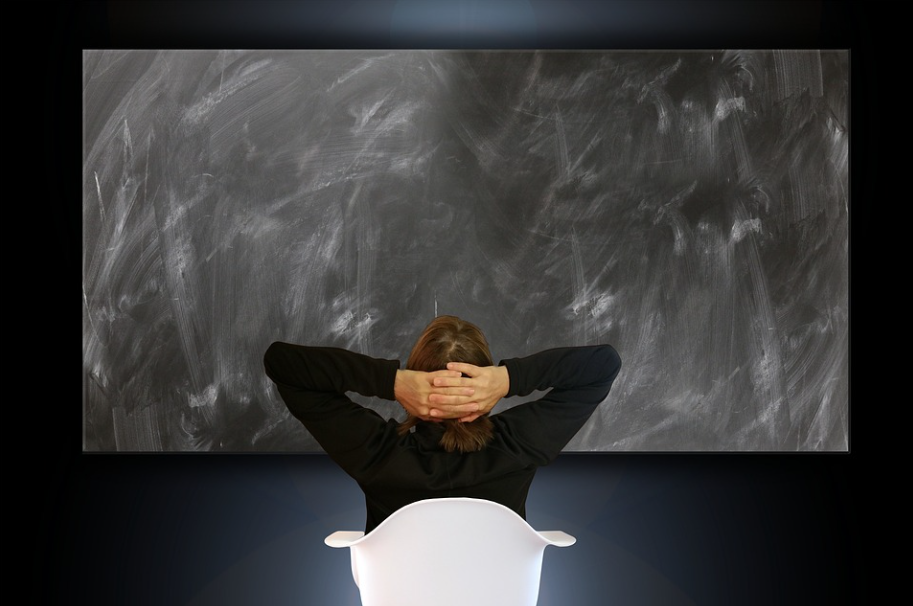Is the Law of Attraction Pseudoscience
The law of attraction is an incredibly popular topic in today’s world. With an almost unlimited number of books and YouTube videos on the topic many are left asking if it is backed by science or if the law of attraction is simply pseudoscience.

Selfpause Affirmation App
Download the app to get 1,000’s of affirmation meditations and everything you need to write, record and listen to your own.
Positive thoughts lead to a lack of something

This concept is based on the notion that like attracts like. Basically, we attract similar things, including our thoughts. Therefore, if you think positively, you’ll attract more positive experiences. Conversely, if you think negatively, you’ll attract more negative experiences.
However, this concept doesn’t make any sense in many cases. For example, it can seem insulting to suggest that “like attracts like” to someone who has experienced trauma. However, some believers have made an exception that says that “like does not manifest.” For example, if a relative of someone dies of cancer, it’s not their fault.
The Law of Attraction also suggests that “good energy” attracts good things. However, it doesn’t make much sense to believe this, since there is no such thing as “bad energy.” Positive thoughts attract more things, and negative thoughts attract more negative ones. This concept is often referred to as “The Secret” or “The Law of Attraction”.
Positive thinking also helps disaster victims. In fact, according to Bob Proctor, a positive attitude can help them recover from a tragedy. Byrne quotes him in the book. If you are trying to attract more positive things into your life, you must use visualization techniques. This will help push your thoughts into reality.
According to the theory of the Law of Attraction, your thoughts have magnetic properties and attract people and events of similar frequencies. People who have positive thoughts are attracted to them. Conversely, people with negative thoughts attract things that are counterproductive. For example, people with negative feelings about money are less likely to act in a way that helps them manifest a better life.
The Law of Attraction works whether you want to believe it or not. Its power is constant, and it will work for you as long as you use it intentionally. Using the Law of Attraction in your life will help you achieve your goals. If you’re aiming for a successful career, a successful relationship, or a better life, you must embrace positive energy and ignore negative feelings.
Although the law of attraction is a powerful tool, it is not foolproof. There are numerous myths surrounding it. First, it’s important to remember that what you think about will eventually manifest itself. And it’s also important to remember that you can’t control everything. If you’re thinking about a lack of money, for example, you’re likely to attract more debt. Conversely, if you think about saving money, you’ll attract more savings.
Like attracts like

The Law of Attraction is the basic premise that things that have similar energies will attract similar objects and experiences. This applies to people as well as things. People tend to attract people like themselves. Positive thoughts and feelings attract positive experiences, and negative thoughts and feelings attract negative experiences. As a result, similar people will gravitate toward one another, magnifying their vibrations.
Although there is no scientific proof to back the law, countless anecdotes support the idea. For example, one author of the book “What You Think Will Attract” talks about a woman who left an abusive relationship and remarried within two months. She never spoke negatively about her ex, and instead spoke positively about her new husband. The new husband showed up shortly afterward and the woman now lives happily in sunny Spain.
However, the popularity of the Law of Attraction has opened it up to criticism. Few psychologists subscribe to the concept and cite its lack of empirical evidence. Other skeptics argue that it is simply pseudoscience and cannot prove its claims. Some believe that the Law of Attraction is based on erroneous assumptions and a faulty understanding of what happens in our lives.
It doesn’t require you to believe in it

You don’t have to believe in the law of attraction to attract positive things into your life. The key is to change your mindset and visualise the outcome you want. Science has proven that visualizing an action before you perform it improves your chances of success. However, this is not the same as visualizing winning the lottery.
If you want to manifest something, start small. Visualize how it will make you feel and what you would do when you have it. The more deliberate your thoughts are, the quicker you will see the result you want. Try to be as specific as possible when thinking about your intentions.
Another area in which the law of attraction can be helpful is achieving professional goals. Many people believe that they can simply focus their energy on their goals and see them manifest. However, they fail to realize that they must take specific actions in the present in order to manifest the results they desire. For instance, if you want to earn a higher salary, you must invest time and energy into developing marketable skills or applying for new positions. The result of these actions will be positive changes in your life.
In addition to manifesting goals, you can use the law of attraction to improve your personal health. You can make yourself feel better by removing negative thoughts. The opposite can be true as well – stress and anxiety can cause health problems and worsen existing conditions. To apply the law of attraction to your life, visit Life Made to Order, Kelli Cooper’s blog. She also offers coaching services and an ebook series that teaches about the power of the law of attraction.
The law of attraction is a philosophy that believes that you attract what you think about. Positive thoughts attract positive outcomes while negative thoughts attract negative results. The principle is based on the belief that thoughts are energy. Thus, the more positive your thoughts, the more successful you will be. However, there is no scientific evidence supporting the theory.
It doesn’t require you to take action

The Law of Attraction is a powerful tool for improving your life, but the process is not automatic. It requires that you first plant an idea in your mind. In addition, you must take action in order to make the idea come true. Here are three steps you can follow to achieve your desired goal:
Begin by focusing on the positive. This will give you a positive attitude towards life and will help you stay motivated to take action. Try to be more positive and you’ll be more likely to attract the things you want. This applies to your relationships as well. A positive attitude will help you overcome the barriers in relationships and develop an optimistic outlook.
Be honest about what you really want. Then start believing that the Universe wants to provide you with that. You can’t be sure what will happen in your life until you start taking action to achieve it. If you’re attached to the outcome, you won’t be able to manifest it.
Make sure you’re able to visualize the outcome you desire. Visualizing the outcome you desire is one of the most effective ways to apply the Law of Attraction. It’s a powerful technique that’s proven to increase your skills and manifest your desires. You’ll soon be experiencing the benefits of applying the Law of Attraction.
While the Law of Attraction may seem like a magical formula, it can take time to produce the desired results. It’s easier to manifest a simple thing, but if you want to make significant changes, it’s going to take longer. This method requires you to be aware of your thoughts and emotions, and learn how to align them with your intentions.
Our Top FAQ's
The Law of Attraction is a belief that posits that positive or negative thoughts can attract corresponding positive or negative experiences or outcomes. It is based on the idea that the universe is constantly responding to our thoughts and feelings, and that we can harness this power to manifest the things we want in our lives. Proponents of the Law of Attraction often suggest that by focusing on positive thoughts and feelings and visualizing one’s desired outcomes, it is possible to bring about positive changes in one’s life.
There is limited scientific evidence to support the effectiveness of the Law of Attraction. Some proponents of the Law of Attraction argue that it has been demonstrated through personal experience and anecdotal accounts, but these types of evidence are not considered scientific and do not provide strong support for the validity of the belief. Some researchers have attempted to study the effects of the Law of Attraction through controlled experiments, but these studies have generally been inconclusive or have not consistently shown positive results.
The Law of Attraction is often associated with various metaphysical or spiritual beliefs, such as the concept of energy, the idea that we are all connected, or the idea that we create our own reality. Some proponents of the Law of Attraction view it as a way to tap into a universal energy or consciousness, while others see it as a psychological tool for achieving personal goals.
There are several criticisms or concerns that have been raised about the Law of Attraction. One concern is that it may be seen as promoting a “blame the victim” mentality, where people who experience negative outcomes in their lives are seen as having brought those outcomes upon themselves through negative thinking. Another concern is that the Law of Attraction may be seen as encouraging people to focus excessively on their own desires and goals, potentially at the expense of their relationships or other aspects of their lives. Additionally, some critics argue that the Law of Attraction may be seen as promoting a simplistic or overly optimistic view of the world, and that it may not take into account the complex and often unpredictable nature of reality.
If someone is interested in incorporating the Law of Attraction into their life or worldview, they might consider practicing techniques such as visualization or affirmations, setting specific goals and intentions, and trying to cultivate a positive mindset and attitude. It is important to keep in mind, however, that the Law of Attraction is not a proven or scientifically validated concept, and that it may not be effective for everyone. It may be helpful to approach the Law of Attraction with an open mind, but also to be aware of its limitations and to not rely on it as a sole means for achieving one’s goals.
